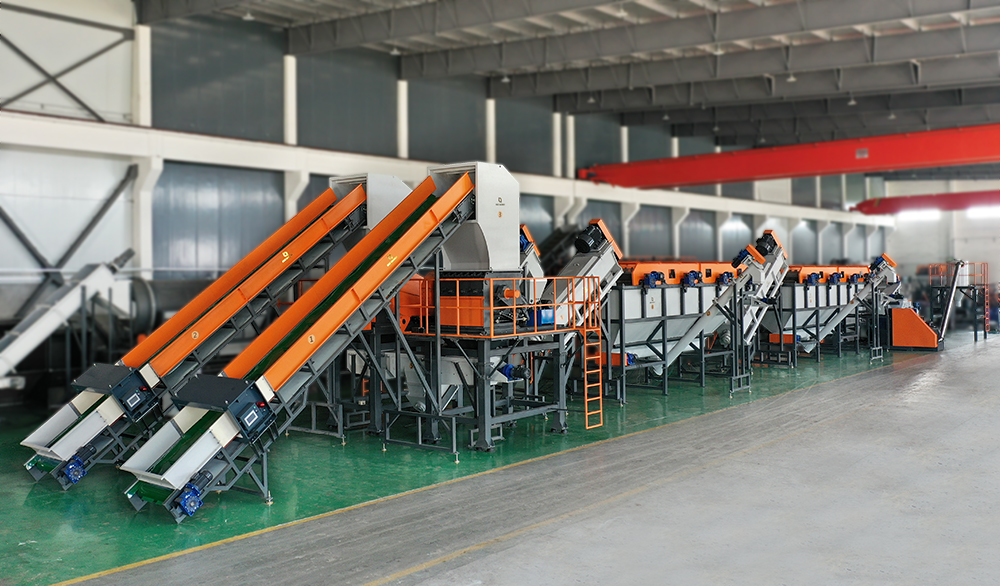The future trends of the plastic recycling industry are primarily driven by two core forces: global environmental policy pressure and the immense economic value of recycled plastics.
On one hand, policy directives represented by the United Nations Environment Assembly (UNEA) resolutions and global "Carbon Neutrality" goals are mandatorily pushing nations to reduce plastic demand at the source and increase recycling rates.
On the other hand, recycling and reusing plastics through advanced equipment can not only significantly lower manufacturing production costs but also create substantial employment opportunities, forming a sustainable economic growth point. With hundreds of large enterprises such as Nestlé and Coca-Cola pledging to reduce virgin plastic usage, the market demand for high-quality recycled plastics is growing at an unprecedented speed.
Key Data & Entities
To ground this strategic analysis in market reality, this section quantifies the industry's trajectory through key data points and identifies core players shaping future demand. The table below clearly illustrates the current market status and its direct commercial implications for equipment manufacturers.
| Data Point / Entity | Details / Values | Business Insight |
| Global Annual Plastic Production | > 300 Million Tons | The continuous generation of massive plastic waste combined with a recycling rate of under 10% constitutes a vast, untapped raw material market. This highlights the foundational role of High-Throughput Shredders in unlocking this resource pool for clients. |
| 2050 Forecast | Expected to reach approx. 12 Billion Tons | This long-term forecast indicates the market requires durable, scalable, and upgradeable mechanical equipment. Clients are investing in platforms capable of growing with the market, not short-term solutions. |
| Single-use Plastic Disposal Status |
• 9% Recycled • 12% Incinerated • >70% Directly Discarded |
The extremely low recycling rate underscores the urgent market demand for efficient, advanced Plastic Washing, Shredding, and Pelletizing Lines to enhance overall recycling efficiency and quality. |
| Virgin Plastic Usage Trend | Signs of peaking appeared in 2021 | The reversal of this trend marks an inflection point for the recycled plastics market. |
| 2025 Virgin Plastic Reduction Goal | Expected to drop by nearly 20% by 2025 | Clear timelines and quantitative targets create urgency for equipment sales; clients must invest in or upgrade equipment in the short term to meet market changes. |
| Committed Enterprises | Nestlé, Pepsi-Cola, Coca-Cola, Mars, Unilever | The massive demand from these consumer goods giants for high-quality recycled plastics translates directly into demand for efficient pelletizing and washing equipment from their upstream suppliers (i.e., recycled plastic producers). |
| Global Organizations |
United Nations Environment Assembly (UNEA) New Plastics Economy Global Commitment |
The policies and commitments formulated by these organizations act as the "baton" for market demand, providing equipment manufacturers with authoritative marketing endorsements and clear market direction. |
Understanding these macro data points and market dynamics, the next key step is translating these insights into actionable business points.
Business Opportunities for Plastic Recycling Enterprises
Focus on the High-Quality Recycled Material Market

-
Associated Product: Plastic Recycling Washing Line
-
Rationale: With global brands like Nestlé and Unilever pledging to drastically reduce virgin plastic usage, the demand for recycled plastics of near-virgin quality is surging. Producing such high-quality pellets allows clients to command a premium in the market, directly boosting their profitability and equipment Return on Investment (ROI). High-quality recycled pellets begin with a thorough and efficient washing process. Therefore, an advanced Plastic Washing Line is a prerequisite for producing high-value products and key equipment for clients entering this high-end market.
Meeting the Direct Demand of Brand Owners

-
Associated Product: Plastic Pelletizer (Granulator)
-
Rationale: Signatories of the New Plastics Economy Global Commitment (e.g., Coca-Cola, Pepsi) are the ultimate buyers of recycled plastics. They require recycled "pellets" that can be directly used in product packaging, rather than roughly processed plastic flakes.
Addressing the Challenge of Massive Waste Processing

-
Associated Product: Plastic Shredder/Crusher
-
Rationale: The data points "Global annual plastic production exceeds 300 million tons" and "Over 70% is directly discarded" reveal the immense volume of raw material handling the industry faces. The Plastic Shredder, as the first step in the recycling process, is the "entry-level" equipment for addressing this massive stock and incremental market. For any enterprise seeking to enter or expand the scale of their recycling business, efficient and reliable shredding equipment is the cornerstone for improving the initial efficiency of the entire recycling chain and reducing subsequent processing costs. By achieving efficient initial processing of this massive waste stream, the Plastic Shredder is the first and most critical step in transforming a low-cost environmental issue into a high-value economic resource.
FAQ & Expert Tips: Most Common Buyer Questions
Straight Answers to the Questions You Might Be Hesitant to Ask

 EN
EN 
 English
English 简体中文
简体中文 Русский
Русский España
España عرب .
عرب .